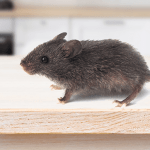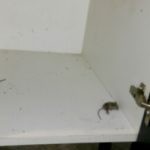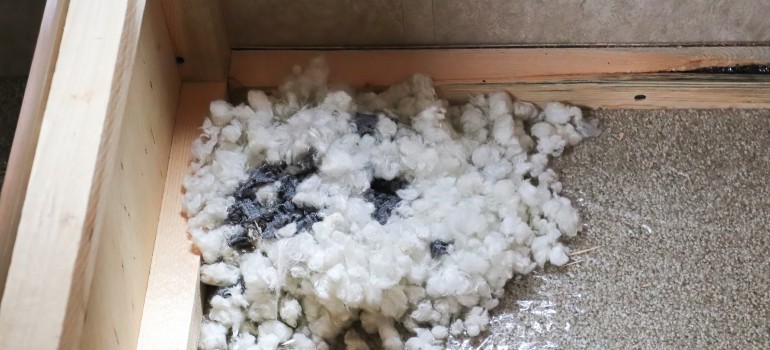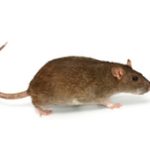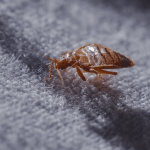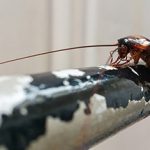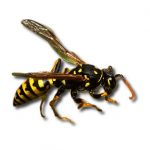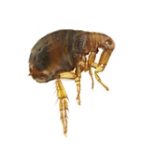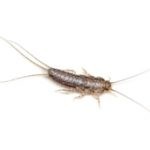Natural Mice Repellents Myths and Facts
Having pesky lodgers such as mice and rodents in your home is not a pleasant situation. They not only carry with them diseases and bacteria such as Hantavirus or Lyme Disease, but they also multiply very quickly (a mouse can give birth to up to 2,000 babies per year) and can damage your property.
Mice infestations are a common household problem, and many homeowners turn to natural repellents as a solution. However, there are many myths surrounding natural mice repellents that can lead to wasted time and frustration. Learn the facts and myths about natural mice repellents. Find out what works and what doesn’t when it comes to natural mouse control.
Does Peppermint Oil Repell Mice?
Some believe in using a natural mouse repellent to get rid of mice in one’s home, and one such mouse repellent is peppermint oil. The reason for this suggestion is that peppermint has a rather strong smell, which is said to affect mice’s olfactory senses. However, there are two reasons why mice peppermint oil won’t work. The first reason is that the smell of peppermint is not long-lasting and it tends to fade quite fast. While your home will smell great when you spray peppermint oil in your rooms, it’s not a great natural mice repellent. While mice dislike strong scents, peppermint oil alone is not enough to keep them out permanently.
A second reason is related to physics. Smells, like gases, tend to rise, whereas mice tend to stay hidden low at ground level. Therefore, the chances of peppermint and mice being a workable solution are quite slim. With this in mind, if you’re wondering does peppermint oil get rid of mice infestation, the short answer would be “no”.
Check also: What Smells Do Mice Hate
Will Ultrasonic Mice Repeller Keep Mice Away?
There are many solutions on the market these days for addressing a mice infestation and one of these is the use of an electronic plug-in mice repellent. These devices emit a high-frequency sound that can only be heard by mice and not humans or pets. While some argue that using these devices is one way of solving a household’s mouse problems, these mice deterrents do not actually work. A sonic mice repellent is actually something that might have rather short-lived results. This is because the ultrasonic mouse repellers side effects are such that the mice will quickly hear the sound, which to them sounds like a jackhammer drilling away at a piece of concrete, and will veer off in a different direction.
Also, these devices generally need to be connected to an electrical outlet which means that they will only be effective in certain areas of your home, and you may not necessarily be able to target the specific mice nest you have hidden somewhere in your walls, floors, roof, attic or elsewhere.
Need help to get rid of the mice in your property?
Book a mouse extermination for your home or business!
Do Mothballs Repel Mice?
Another myth related to mouse repellents is that mothballs repel mice. Mothballs are usually made up of naphthalene, which is a strong chemical that can cause harm to humans and pets if ingested. They need to be spread around your home in very large quantities, but the trouble is that like all chemicals when exposed to oxygen in the air their smells will fade. This will certainly help you with keeping insects and moths away, but the downside is that such mothballs are hardly good at keeping mice out of your home.
Does Vinegar Really Repel Mice?
Yes, vinegar is a natural mouse deterrent. The strong acetic acid smell interferes with a mouse’s scent receptors, making it an effective chemical-free rodent repellent. However, while vinegar may act as a short-term deterrent, it is not a guaranteed long-term solution for a mouse infestation. Mice may get used to the smell and ignore it. Vinegar works against mice best when combined with other natural mouse repellents and physical barriers.
Do Cats Get Rid of Mice?
A further suggested natural mice deterrent is your beloved pet cat. But do cats get rid of mice? There are several problems with this solution. The first of which is that not all cats are hunters. They might see a mouse and simply look at it as a plaything rather than food. This is especially the case if your cat is used to being fed by you on a regular basis. In addition to this, cats are hardly capable of reaching nesting areas, which is where your ultimate problem lies. And as mentioned above, mice carry diseases with them, which means that if your cat were to devour a mouse, it might be exposed to some serious illnesses. Finally, the best prevention tip for getting rid of mice is to seal up your home. This is something your cat can’t do. Therefore, to avoid getting your pet sick and to deal with an infestation at the root of the problem, you will need to either seek professional help or seal up your home with steel wool and caulk.
Other Myths About Natural Mouse Repellents
Other myths include dealing with them in a humane manner in order to get rid of the mice naturally, which means catching the little lodger and moving them to another location that’s far away from your home. One way to trap these animals is to attract them with food, and one such common misconception is that mice love cheese.
In fact, while mice will eat crumbs, leftover food and anything else that’s lying around on your floor or between your couch cushions, cheese is not something that will really draw the mice in so that you can catch them. Peanut butter, on the other hand, is something they love. Therefore, some of the most natural ways to get rid of mice include sealing up your home, vents, pipes, holes in the floor and walls, etc., making sure there’s no food lying around and if there is, sealing it up in airtight containers and ultimately getting in touch with a professional.
Check also: How to Get Rid of Mice In the Walls
Takeaways
While there are many myths and misconceptions about getting rid of mice with homemade remedies, in most cases, these old wives’ tales are simply that and they are ineffective against these shrewd and agile creatures. Therefore, when dealing with a mouse problem, keep the following in mind:
- Peppermint oil does not repel mice
- Ultrasonic mice repellents will only work in the short term, if at all
- Mothballs are an ineffective way of dealing with a mice infestation
- The chances of your cat being able to address a mice infestation are slim
- Mice are not terribly attracted to cheese and you should consider other, alternative and natural ways of addressing a mouse problem.
Want an expert help with mice?
We share helpful information according to the experience and knowledge of our pest technicians. However, we don’t provide any medical advice.





